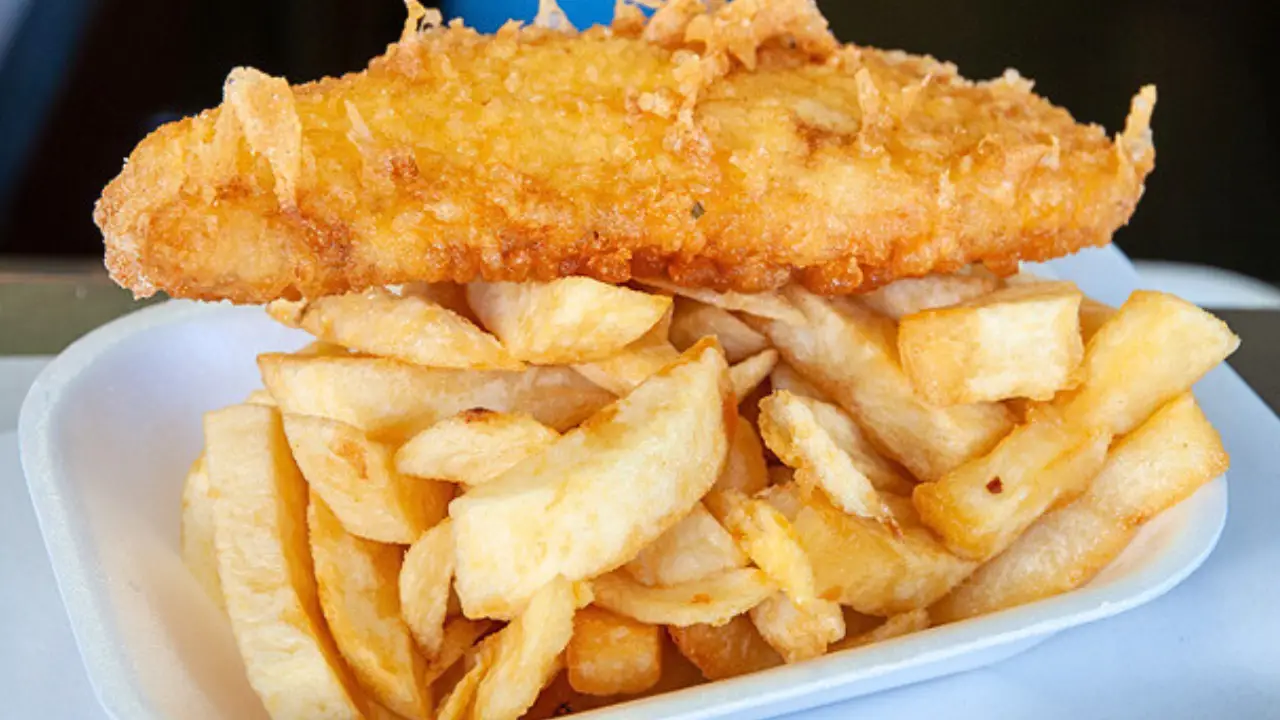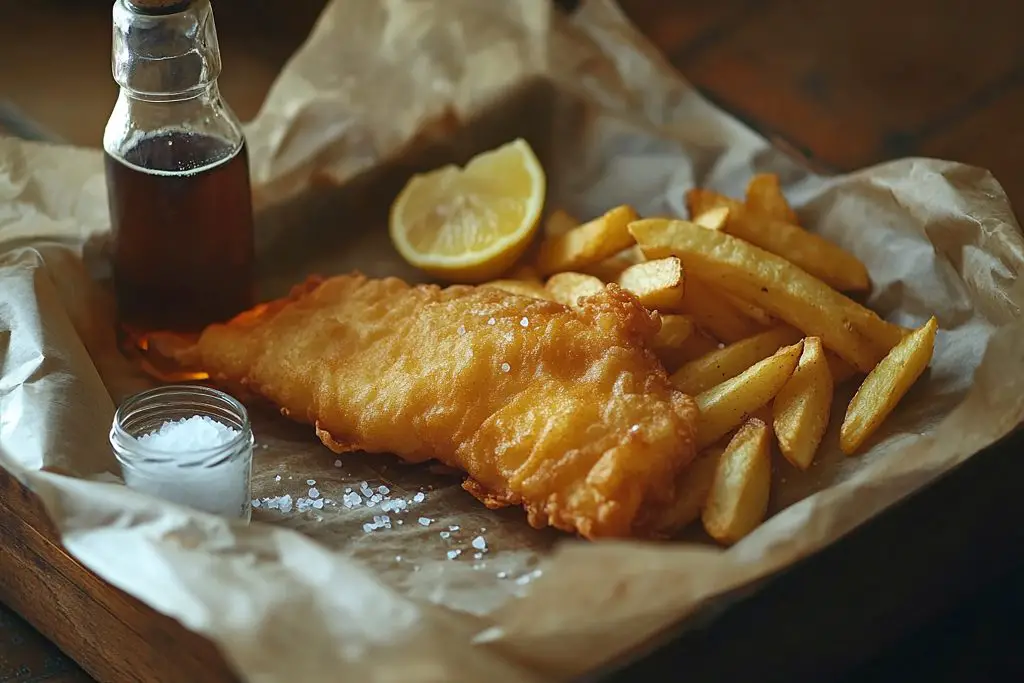
Credit: Adobe Stock
People Are Just Realizing Chip Shop Vinegar Isn’t Vinegar
Many people across the U.K. are now just realizing a surprising truth about one of the nation’s most beloved takeaway staples: the ‘vinegar’ used in most fish and chip shops isn’t actually vinegar at all.
Despite being a central feature of this classic British meal, what’s commonly drizzled over your chips is, in fact, something entirely different – legally, at least.
It’s estimated that Britons consume around 400 million portions of fish and chips each year, and for many, the ritual isn’t complete without a generous splash of vinegar.
This revelation has left many fast food enthusiasts stunned.
In a 2016 video titled ‘The Fake Vinegar In British Fish and Chip Shops,’ which has garnered over five million views, YouTuber Tom Scott said: “Most people don’t know that this isn’t vinegar.”
He added: “Legally, it can’t be described as vinegar. Trading standards are really clear on that.”

Reactions from the public have been mixed – after the news was shared in an Instagram post by LADbible, social media users flooded the comments with their opinions.
Some were indifferent to the revelation, embracing the taste regardless of its authenticity.
One person commented: “Sorry but chippy ‘vinegar’ is the best, even if my whole life has been a lie,” while another added: “Still tastes better than any other vinegar I’ve had.”
Others, however, were more critical.
Some insisted on using real malt vinegar at home, with one writing: “That’s why you never ask for salt and vinegar and put the proper stuff on at home!
Another user declared: “Yes, it’s not malted and should be illegal.”

What’s often poured from those traditional bottles is not brewed vinegar but a product known as non-brewed condiment.
This imitation is made using acetic acid, water, and food coloring, giving it a similar tangy taste but without undergoing the brewing process that defines real vinegar.
The reason for this swap?
Non-brewed condiment is not only cheaper to produce, but it also has a longer shelf life and is faster to manufacture.
These practical advantages make it especially appealing for high-volume establishments like chip shops.
Also, this substitute is often suitable for individuals with specific dietary restrictions, such as those following a halal diet or those who need to avoid gluten, since traditional malt vinegar contains barley.
Despite being common practice for years, the fact that most chippies use a vinegar substitute is only now entering mainstream awareness – proving that even the most familiar flavors can come with a surprising twist.
Related Article: People Are Only Just Realizing What Filling Inside A Cadbury’s Creme Egg Is
Related Article: The Cookie Monster’s ‘Cookies’ Aren’t Actually Cookies
Want more stuff like this?
Get the best viral stories straight into your inbox!